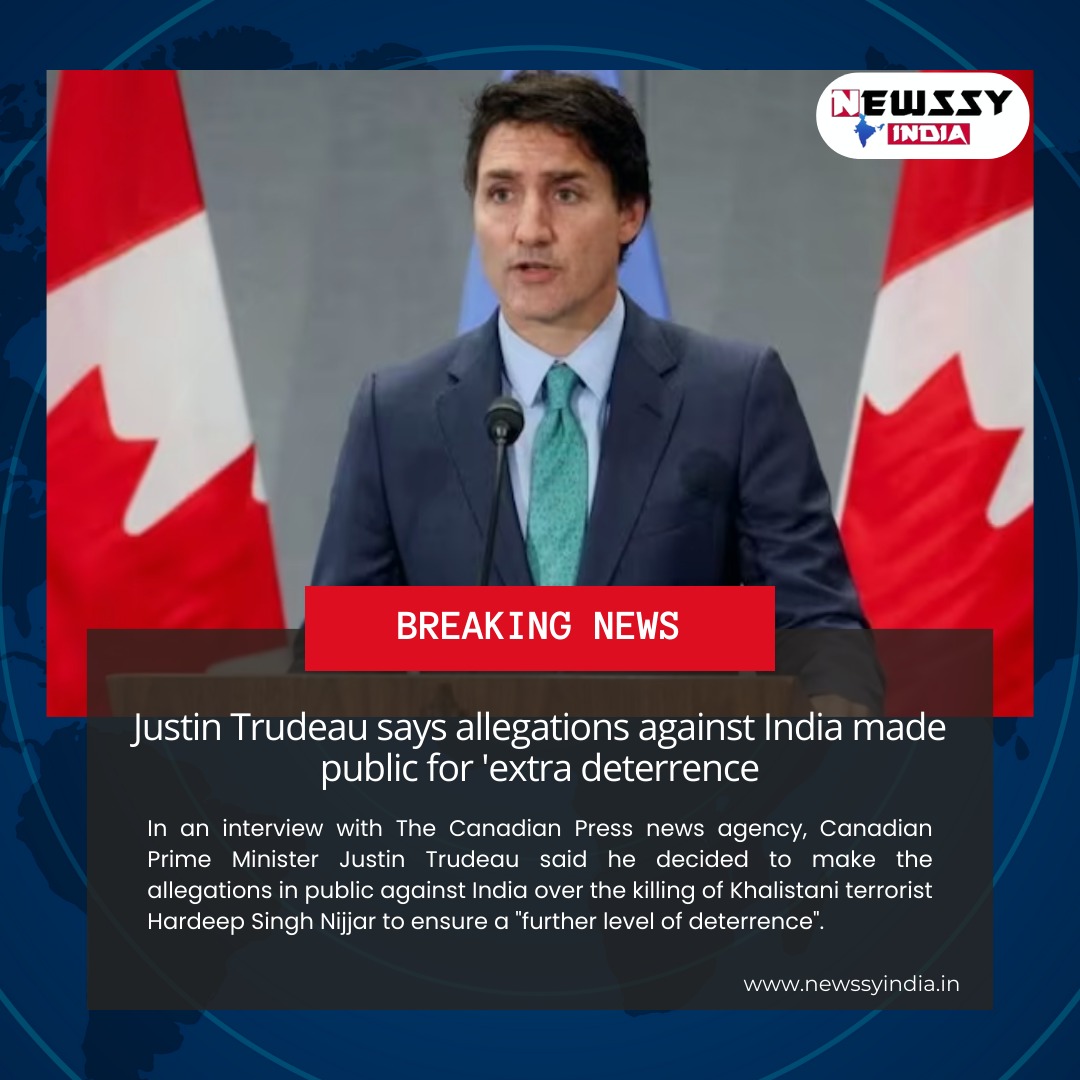In a recent interview with The Canadian Press, Prime Minister Justin Trudeau shed light on his decision to publicly raise allegations against India concerning the killing of Khalistani terrorist Hardeep Singh Nijjar. His reasoning? “Extra deterrence.”
This statement has sparked a complex debate, raising concerns about its potential impact on the already strained Indo-Canadian relations. To understand the context and its implications, let’s delve deeper into the issue:
The Allegations:
Nijjar, a pro-Khalistan separatist figure, was found dead in Punjab, India, in 2023.
Canada, concerned about potential Indian involvement, initiated investigations and raised the issue with Indian authorities through “quiet diplomacy.”
Trudeau’s public statement, however, marked a shift in approach. He openly expressed concern about a possible Indian link to the killing.
Trudeau’s Rationale for Publicly Addressing the Allegations:
Deterrence: Trudeau believes his public statement served as an “extra level of deterrence” to prevent similar actions from India in the future.
Transparency and Accountability: He argues that bringing the matter to light fosters transparency and holds India accountable for its actions.
Sending a Message to the G20: Trudeau also mentioned using the platform of India’s G20 presidency to encourage its adherence to international norms and principles.
Potential Consequences:
Strained Relations: India has responded negatively to the public accusations, potentially jeopardizing bilateral relations and cooperation on critical issues like trade and security.
Escalation of Tensions: The public nature of the accusations could exacerbate existing tensions between the two countries and their respective communities.
Damage to Diplomatic Efforts: Openly airing grievances might hinder future diplomatic efforts to resolve the issue and address underlying concerns.
Alternative Approaches:
Continued Quiet Diplomacy: Pursuing investigations and seeking clarifications from India through diplomatic channels, prioritizing dialogue and compromise.
International Mediation: Engaging neutral third parties or international organizations to facilitate communication and understanding between the two nations.
Focus on Shared Interests: Emphasizing common ground and areas of cooperation, such as counter-terrorism initiatives or economic partnerships, to build trust and foster positive engagement.
Conclusion:
Trudeau’s decision to publicly address the allegations against India presents a complex situation with potential benefits and risks. While his intentions of deterrence and transparency are understandable, the approach could further strain relations and hinder diplomatic efforts. Moving forward, both countries must prioritize constructive dialogue, focus on shared interests, and explore alternative avenues for addressing sensitive issues while upholding international norms and respecting each other’s concerns.








